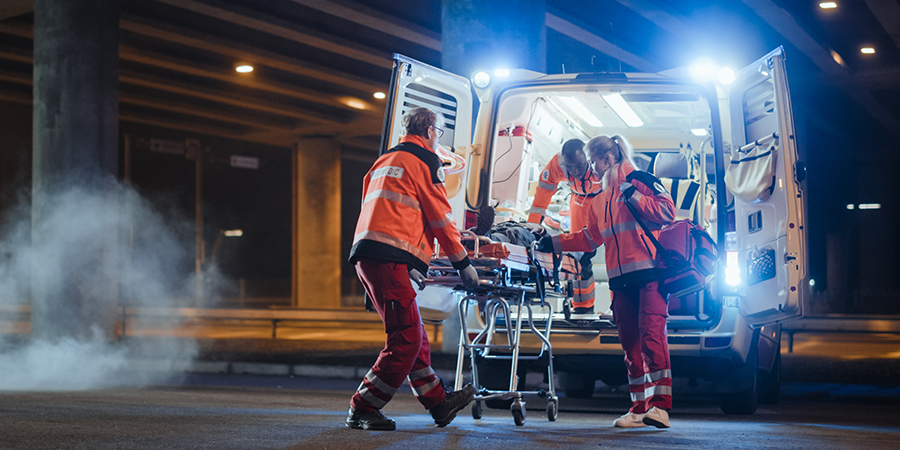To take care of others, EMS providers must take good care of themselves.
EMS personnel perform their duties in a variety of challenging environments and must be fully prepared to handle ongoing physical and mental demands for the duration of each call.
“The challenges of long and variable shifts, back-to-back calls, stressful work environments and sleep deprivation all influence unhealthy behaviors,” said Tyler Morrison, an exercise physiologist in UTMB’s Rehabilitation Services Department.
This physically demanding work often results in injury patterns that need prevention and attention. And medics value being part of a team, so being able to get back to work soon is important. You don’t want to let your team down.
By improving physical strength and conditioning, the medic can perform better at work and reduce the likelihood of work-related injuries.
Stamina, endurance and flexibility contribute to doing your job well. And it comes from conditioning based on scientific research.
“It’s about the ability to do your job,” said Greg McGowen, the rehabilitation services manager at UTMB Health. “Exercise is a science for a reason.”
Several professional organizations, including the National Strength and Conditional Association (NSCA), use the term “tactical athlete” to describe military, law enforcement and other first-responder professionals whose regular job duties demand a high level of rigorous physical activity. And like any athlete, medics need to practice and prepare for action.
Sometimes, EMTs and paramedics tell Morrison they don’t have time to slow down when they are in the field in the middle of a response. The exercise physiologist would argue that they do.
“You can take two or three extra seconds to make sure your body is in a good position,” Morrison said.
Back pain, shoulder pain, knee pain and hip pain is not normal just because everyone else has it.
“You’ve got a lot of guys who’ve been on the job for years with low back pain,” Morrison said. “They think that’s the way it is. It’s not. Things like this can be prevented.”
To improve conditioning for medics, Morrison structures workouts in microdoses. Plenty of sleep and a decent diet are also part of a recovery plan for first responders.
Morrison has known some
medics who had to bow out of
the career field because of their
injuries, and that shouldn’t
be the case. “Doing your job
should not cause pain,” he
said.
Crucial tips for improving overall well-being
Physical wellness
Exercise regularly.
Focus on strength and conditioning exercises.
Focus on conscious breathing.
Get plenty of rest.
Protect against heat-related illnesses.
Seek medical treatment when needed. Do not ignore pain.
Take time to heal when injured.
Nutritional wellness
Proper nutrition is essential for overall good health.
Eat a healthy well-balanced diet.
Do not skip meals.
Eat more fruits and vegetables.
Maintain a healthy body weight.
Drink sensibly. Reduce alcohol consumption.
Drink plenty of water.
Mental and emotional wellness
Know the signs and symptoms of good and bad stressors.
Learn how stress affects you.
Develop healthy coping mechanisms to manage or minimize stress.
Spend time with friends and family.
Seek professional help, if needed.
